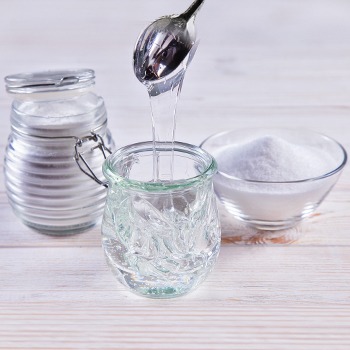
REGULAR DE SYRUPS
Product family:
Sweeteners
Labelling:
Liquid sweeteners
Area of Application:
FOOD

Main Characteristics:
Dextrose equivalent (reducing substances)
40
Total Solids, %, max.
83
SO2 content, mg / kg, max.
< 10
Color, ICUMSA units, max.
20
Industry |  Baked goods |  Confectionery |  Dairy products |  Processed fruit and vegetables |  Processed meat and fish food |  Sauces & dressings |  Prepared mixes |  Beverages, non-alcoholic |  Canned foods |
|---|---|---|---|---|---|---|---|---|---|
| Benefits & Properties | Strengthening of chewing properties | Gives elasticity / hardness | Stability | Sweetness control | Affects the taste | Sweetness control | Binding agent | Sweetness control | Structure improvement |
| Dough rheology | Crystallization control | Sweetness control | Smoothness enchance | Humidity control | Smoothness enchance | Crystallization control | Affects the taste | Sweetness control | |
| Glossy or shiny surface | Humidity control | Provides necessary texture | Thickening and stabilization | Provides necessary texture | Syneresis resistant | Viscosity | Viscosity | Crystallization control | |
| Gives a wet / soft consistency | Sweetness control | Viscosity | Viscosity | Viscosity | Thickening and stabilization | Structure improvement | Enhance flavor | Glossy or shiny surface | |
| Source of fermentable sugars | Structure improvement | Viscosity | Energy value | Viscosity | |||||
| Sweetness control | Viscosity | Osmotic control |
General Information:
Interstarch Ukraine produces starch molasses with glucose equivalent of 38-42%. It is produced by enzymatic and/or acid hydrolysis of cornstarch. It is exposed to multistage purification with the use of activated carbon and ion exchange resins, which guarantees high product purity and constant quality during storage.
Starch molasses is widely used as a sweetener and anti-crystallizer in the confectionery industry (as the main raw material along with sugar). Also, it works as a binder ingredient, adds sweetness to sauces and dressings, various toppings and fillers. Can be used in making sweet snacks. Improves the texture of the finished product and increases shelf life.
Product Specification request


